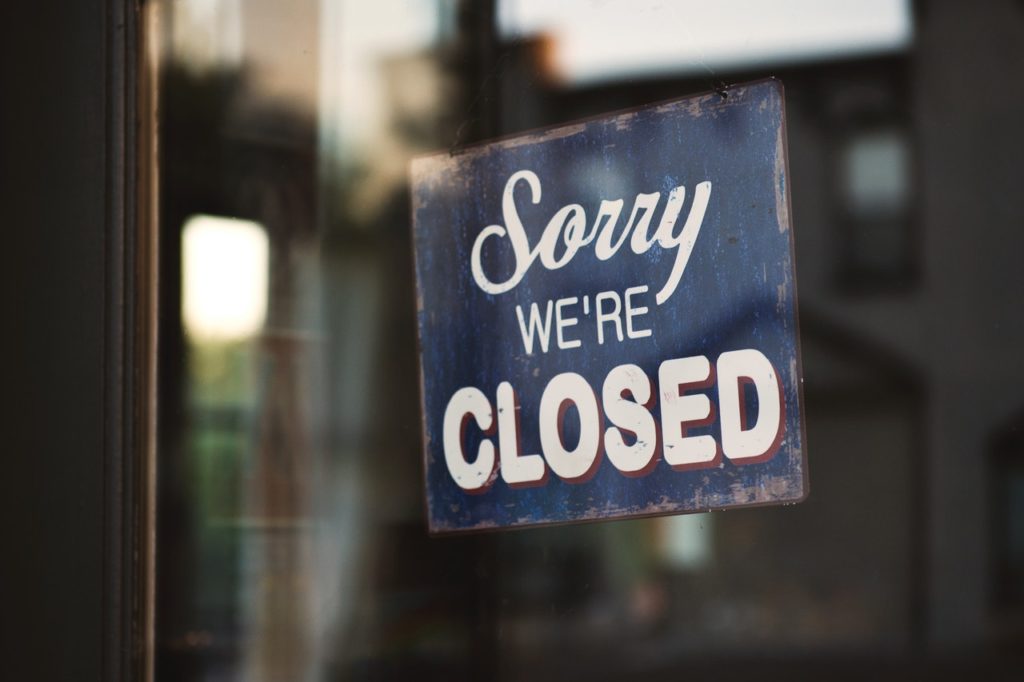If you are trying to figure out whether you should soldier on or close your business, you are not alone. With covid-19 not going away anytime soon, many business owners have either closed their doors or are facing the same predicament you’re currently facing.
It is a tough decision to make, but accepting and knowing when you should close your doors could help shield you from business debts and personal struggles. Likewise, reviewing your business’s specific circumstances might uncover a strategy for starting over or reorganizing.
Ultimately, it’s up to you to determine whether you have the financial and emotional resources to continue your operations. But the following considerations could help you decide your next steps.
Do a Thorough Review of Your Business’s Financial Situation
If you’ve been operating at a loss or on a reduced margin these previous months, you probably have an idea of what your books look like. Nonetheless, you should carefully reevaluate your expenses, cash flow, potential future income, and current revenue.
These crucial numbers are key to helping you determine what your small business requires and whether it’s capable of riding out the pandemic. Assessing your financial situation starts with reviewing your future and current expenses and deciding which ones are essential and which ones you can postpone, reduce, or drop altogether.
For instance, if one of your biggest expenses is rent, you should review the lease and try reasoning with your landlord. Ask if your landlord would be open to renegotiating the lease terms, postponing payments, or lowering payments.
But if your landlord can’t be reasoned with, this could be a contributing factor in whether your business can continue to operate in its current location without an increase in your revenue.

Decide If Pausing Your Business Is Right for You
If your small business was significantly healthy, financially speaking, before the pandemic hit, and you believe in your business, consider putting your business on pause. Also known as the hibernation mode, pausing your business will enable you to take stock, lower your expenses, and plan for a solid comeback when demand for your offerings returns.
You can likewise consider maintaining a minimal level of business operations, if possible. For instance, if it would be impractical to pay rent and maintain your business’s location, see if you can offer your services or products online or from a home office.
Also, if you’ve decided to pause your business for a couple of months, don’t forget to stay connected with key customers, employees, and contacts.
Dissolve Your Business Voluntarily
If you’ve determined that scaling down is not possible, exhausted your resources, or want to pursue something else, you should consider dissolving your small business voluntarily.
However, it would help if you kept in mind that dissolving your small business will result in your business name being up for grabs (following a predetermined waiting period), which means that other businesses can use it. This waiting period differs from state to state, so you should do your homework before choosing voluntary dissolution.
Additionally, you’ll need to take specific financial and legal steps to exit your business properly. Make sure to discuss all eventualities and options with business partners, if applicable, and keep your customers and employees informed.
Lastly, deciding to close your business for good, whether you’re an established marketing agency or have recently launched a game-changing business advertising directory app, doesn’t reflect poorly on your business know-how and yourself as an individual, particularly in light of this global pandemic.
Take all the lessons this experience can give you and apply them to your business ventures in the future.

